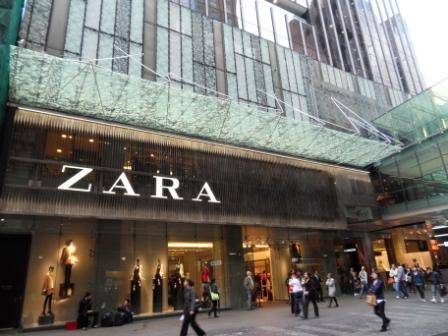This conflict is between a world-renowned luxury-clothing brand and a renowned restaurant and bar in a city. The Delhi High Court decided the trademark infringement tussle in favor the luxury brand ZARA, not because it is celebrated around the world but simply to protect the brand’s trademark rights.
ZARA, an internationally reputed brand, the plaintiff sued Zara Tapas Bar for trademark infringement and sought injunction restraining the defendant from infringement, passing off and dilution of its trademark. The plaintiff contended that it started carrying its operation in India from 2010 through its associate company, Inditex Trent Retail India Private Limited, which is a joint venture between the plaintiff and the Tata Group Company. It asserted that the term ZARA was conceived and adopted as it trademark in 1975 when it opened its first ship in La Coruna, Spain and the domain name was registered in 1997 and since has been in continuous use of the plaintiff. The plaintiff averred that it was in 2005 that it became aware of defendant’s trademark application for ZARA TAPAS BAR, against which it filed opposition. However, it again came across another application in the end of 2012, against which an opposition was also filed.
Desiring for a compromise, the defendant proposed co-existence of the marks ZARA and ZARA TAPAS BAR that they would confine themselves only to restaurant and allied services, which was straightaway rejected by the plaintiff. The defendant defended their cause and stated that the plaintiff concealed that there were numerous trademark disputes in both India and EU against it and that the major delay of the plaintiff in filing the suit amounted to acquiescence. They also contended that they are not using the mark ZARA per se, but using it earlier as ZARA TAPAS BAR and subsequently as ZARA, the Tapas Bar and Restaurant.
The court in deciding the dispute looked into the way the mark was being used by the defendants. The defendants website and pages of social networking websites focused on the word ZARA and TAPAS BAR was barely readable. It repeatedly described itself as only ZARA and associated itself with Spanish products from where ZARA, the plaintiff’s brand originates making it a dishonest and fraudulent adoption of the mark by the defendants. The court also quashed their argument of the mark becoming Publici Juris as it stated that it is the choice of the plaintiff to sue infringers. If the plaintiff does not choose to sue certain infringers, it does not disentitle them to sue other infringers.
In a, what can only be described as a despondent loss to the defendants, it was stated by the Delhi High Court that the defendants wanted to ride on reputation and goodwill of the plaintiff. The argument of the defendants that plaintiff did not come with clean hands as it did not disclose facts, were held to be unsubstantiated as unless such disclosure was not material and was not malafide, it did not disentitle the plaintiff from seeking remedy. The Court granted protection in the form of an ad interim order dated May 19, 2015, to the plaintiff’s mark irrespective of dissimilarity to goods and services, as it was of that view that such unauthorized usage could discredit the goodwill and reputation of the plaintiff.
This post has been authored by Aishwarya Jain (intern at Banana IP).
Image Source/Attribution- here, Creative Commons License CC BY-SA 3.0



